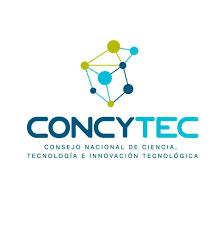La inteligencia emocional de los docentes en los entornos virtuales de aprendizaje
DOI. 10.54798/MGXX7623
Keywords:
Inteligencia Emocional, docente Entornos Virtuales de aprendizaje AprendizajeAbstract
El objetivo del artículo de revisión es analizar el avance del conocimiento científico de la inteligencia emocional de los docentes en los entornos virtuales de aprendizaje de los periodos 2018 al 2020, utilizando un tipo de investigación cuantitativa de diseño bibliométrico ,como resultado de la investigación he obtenido 29 artículos de estudios relacionados con las variables en el periodo 2018 al 2020,llevándonos estos artículos arribar que según la discusión y conclusión La mayor parte de estudios antecedentes son del año 2020 y sobre la variable entornos virtuales de aprendizaje ,el mayor número de artículos relacionados con la variable de estudio, son de tipo cuantitativo con diseño no experimental ,además la inteligencia emocional de los docentes influye en el proceso de aprendizaje de los estudiantes, dentro del entorno virtual o presencial.
References
Abiodullah, M., & Aslam, M. (2020). Emotional Intelligence as a Predictor of Teacher Engagement in Classroom. Bulletin of Education and Research, 42(1), 127–140.
AKA, S. T., & SARIER, A. (2020). Study on Emotional Intelligence Levels of Physical Education Teachers in Terms of Various Variables. International Education Studies, 13(3), 111. https://doi.org/10.5539/ies.v13n3p111
Ardanuy, J., & Rey Vázquez, L. (2009). Breve introducción a la bibliometría.
Universitat de Barcelona, 63. https://doi.org/10.1038/nmat3485
Bisquerra, R. Salovey, P., & Mayer, J. D. (2009). Psicopedagogía de las emociones.
Síntesis, 9, 185–211.
Chong, S. C. (2020). Emotional intelligence and job performance of academicians in Malaysia. International Journal of Higher Education, 19(1), 69–80. https://doi.org/10.5430/ijhe.v9n1p69
Cohen, N., & Rojas, G. G. (2019). METODOLOGIA DE LA INVESTIGACION ¿PARA
QUE ? http://library1.nida.ac.th/termpaper6/sd/2554/19755.pdf Concepción-Toledo, D. N. ., & González-Suárez, E. (2019). Metodología de la
investigación: Origen y construcción de una tesis doctoral. Revista Científica de la UCSA, 6(1), 76–87. https://doi.org/10.18004/ucsa/2409-8752/2019.006(01)076-
Corona. (2020). Pertinencia de un Programa Docente ante los retos de la Industria 4.0.
Educación y Humanismo, 22(39), 1–20. https://doi.org/10.17081/eduhum.22.39.3735
Dayag, J. D. (2018). EFL virtual learning environments: Perception, concerns and challenges. Teaching English with Technology, 16(4), 20–33. https://www.ceeol.com/search/article-detail?id=707763
Falode, O. (2018). Pre-service Teachers’ Perceived Ease of Use, Perceived Usefulness, Attitude and Intentions Towards Virtual Laboratory Package Utilization in Teaching and Learning of Physics. Malaysian Online Journal of Educational Technology, 6(3), 63–72. https://doi.org/10.17220/mojet.2018.03.005
Farooq, S., & Benade, L. (2019). Constructing a dialogic pedagogy in virtual learning environments: A literature review. Teachers’ Work, 16(1 & 2), 7–13. https://doi.org/10.24135/teacherswork.v16i1and2.292
Fernandez. (2020). Aprendizaje ubicuo en los posgrados de la Universidad UNIANDES de Ecuador. 2507(1), 1–9.
García-Chitiva, M. del P., & Suárez-Guerrero, C. (2019). Estado de la investigación sobre la colaboración en Entornos Virtuales de Aprendizaje. Pixel-Bit, Revista de Medios y Educación, 56, 169–191. https://doi.org/10.12795/pixelbit.2019.i56.09
García Peñalvo, F. J., & & Corell, A. (2020). Online assessment in higher education in the time of COVID-19. Education in the Knowledge Society, 21(2013), 6–7. https://doi.org/10.14201/eks.23013
Geovanna Baque, C. N. (2019). Año: 2019. 77. NARVÁEZ NARVÁEZ, Á. E. (2019).
ANALISIS DE VULNERABILIDADES PARA LA RED LAN DE LA EMPRESA “HIDROMAG”, BAJO LA METODOLOGIA “OSSTMM”
(Bachelor’s thesis, Quito).
Go, M. (2020). Filipino Teachers’ Compartmentalization Ability, Emotional Intelligence, and Teaching Performance. Asian Journal of University Education, 16(3), 27. https://doi.org/10.24191/ajue.v16i3.7912
Hermann-Acosta. (2019). Reflections and perspectives on the uses of social networks in education. A case study in quito-Ecuador. Informacion Tecnologica, 30(1), 215– 220. https://doi.org/10.4067/S0718-07642019000100215
Krissia, F., & Jacobo, E. (2020). Tips de investigación y redacción bibliográfica Objetivo.
Llumiquinga. (2020). Inteligencia emocional en docentes universitarios, Quito- Ecuador, en el año 2020. http://www.dspace.uce.edu.ec/handle/25000/20647
Melo-Solarte, D. S., & Díaz, P. A. (2018). El Aprendizaje Afectivo y la Gamificación en Escenarios de Educación Virtual. Información tecnológica, 29(3), 237–248. https://doi.org/10.4067/s0718-07642018000300237
Neme-Chaves, S. R., & Rodríguez-González, L. Y. (2019). A bibliometric analysis of brand equity 1991-2018. Revista de Metodos Cuantitativos para la Economia y la Empresa, 28(28), 364–380.
Nóbile Inez, C., & Luna Enrique, Á. (2015). Área Temática : Virtualización De La Educación Superior Aprendizaje Como Contribución a La Calidad. 17.
Platsidou, M., & Diamantopoulou, G. (2020). Different Voices on Emotional Intelligence Skills of the Good Teacher: Teachers, Students and Parents. Journal of Education and Human Development, 9(2), 54–62. https://doi.org/10.15640/jehd.v9n2a6
Plaza Zambrano. (2019). Metodología de la investigación.
Rodríguez, Y. P. &, & Fernando, M. (2019). Empowerment from learning for an autonomous approach using PERA test. Revista Lasallista de Investigacion, 16(2), 171–178. https://doi.org/10.22507/rli.v16n2a21
Sampieri, R. (2014). Metdologias de la Investigaion.
Sanz Casado, E., & Martín Moreno, C. (1997). Técnicas bibliométricas aplicadas a los estudios de usuarios. Revista General de Información y Documentación, 7(2), 41– 41. https://doi.org/10.5209/RGID.11724
Straková, Z., & Cimermanová, I. (2018). Developing reflective skills of student teachers in the virtual learning environment. Electronic Journal of e-Learning, 16(2), 107– 121.
Strong, C. (2020). Discovering the emotional intelligence exhibited by primary school teachers while delivering physical education in the United Kingdom. International Journal of Emotional Education, 12(1), 88–94.
Suárez Guerrero, C. (2003). Los entornos virtuales de aprendizaje como espacio de mediación. Education in the knowledge society (EKS), 4(1), 9. http://revistas.usal.es/index.php/revistatesi/article/view/14342/14728%0Ahttp://red ined.mecd.gob.es/xmlui/handle/11162/127409
Valdés, V., & Gutiérrez-Esteban, P. (2018). The pedagogical priorities in the learning and knowledge society. An study for the reflection on the quality in the new educational model. Multidisciplinary Journal of Educational Research, 8(1), 6. https://doi.org/10.17583/remie.2018.3199
Vicneas, M., & Ahmad Zamzuri, M. A. (2020). The effect of valence and arousal on virtual agent’s designs in quiz based multimedia learning environment.
International Journal of Instruction, 13(4), 903–920. https://doi.org/10.29333/iji.2020.13455a
Viganò, F., & Colombetti, M. (2007). TEORIA DEL APRENDIZAJE
SIGNIFICATIVO. Lecture Notes in Computer Science (including subseries Lecture Notes in Artificial Intelligence and Lecture Notes in Bioinformatics), 4386 LNAI, 115–129. https://doi.org/10.1007/978-3-540-74459-7_8
Published
License
Copyright (c) 2022 Revista Cientifica Emprendimiento Científico Tecnologico

This work is licensed under a Creative Commons Attribution-NonCommercial 4.0 International License.














